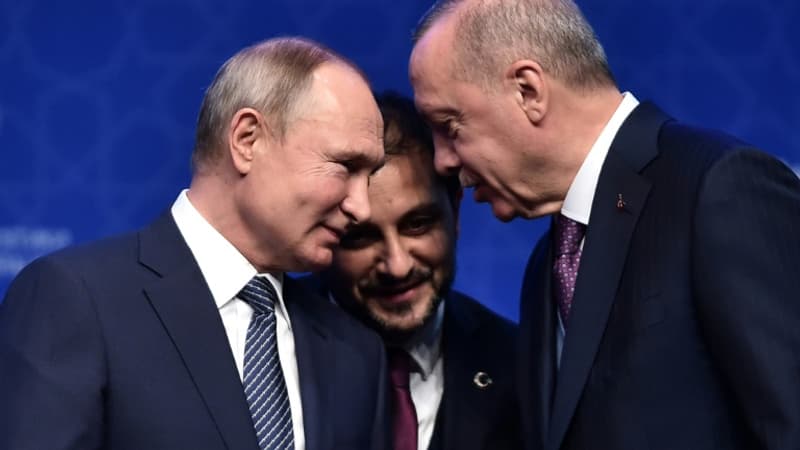Caught between Washington and Moscow, Turkey gave up the Russian Mir payment system for fear of US retaliation, which Moscow denounced as “unprecedented pressure” from the United States.
“There are ongoing payments, but a date has been set” for the suspension of the Mir system, a senior Turkish official told AFP on Wednesday, speaking on condition of anonymity and without specifying a date.
The three affected public banks – Halkbank, Ziraat and Vakifbank, which did not react on Wednesday – had so far authorized transactions with this Russian system, in particular the withdrawal of money.
“Under unprecedented pressure” from Washington
Two of the largest private banks in the country, Denizbank and Isbank, had already announced last week that they were suspending its use.
For the Kremlin, “this decision, of course, was taken under unprecedented pressure” from Washington, spokesman Dmitry Peskov criticized.
Acknowledging “the complex situation” of Turkish banks that are now “threatened by US sanctions,” he appealed to Turkish partners.
The operation of Mir bank cards is now reduced to a handful of countries close to Moscow, including Belarus: on Friday, Uzbekistan had already given up Mir, citing “technical” reasons.
addiction and mediation
Heavily dependent on Russian oil and gas, Turkey refused to join the Western sanctions imposed against Russia after the invasion of Ukraine, while tirelessly offering mediation between Moscow and Kyiv.
The country, a popular destination for Russian citizens, has seen the arrival of thousands of them since the beginning of the war, tourists, refugees and businessmen who, as of May, became the first buyers of real estate in Turkey.
Ankara had announced expanding the range of the Mir system following a meeting in early August between President Recep Tayyip Erdogan and his Russian counterpart, Vladimir Putin.
The two leaders also agreed to deliveries of Russian gas to Turkey payable, for a quarter, in rubles. But Washington immediately warned Turkish companies and banks that trade with Russia against possible sanctions.
In mid-September, the United States announced sanctions against senior officials of the Russian banking system, including Vladimir Komlev, head of the Mir system. Since then, the Turkish regime seems to distance itself from the Kremlin: before the United Nations, Erdogan called for “a dignified solution for all” of the conflict in Ukraine.
Then last week, Turkey’s foreign ministry denounced Russia’s “illegitimate” referendums in four Ukrainian regions under its control.
On Tuesday, the head of US diplomacy, Antony Blinken, threatened Russia with new “severe” sanctions.
“There will be consequences”
“The Chinese, the United Arab Emirates, the Indians and many other countries must understand that there will be consequences” to continue trading with Moscow, added the anti-corruption campaigner after experiencing setbacks in Russia.
Developed in 2015 in the face of Western sanctions following Crimea’s annexation in 2014, Mir cards, which mean “world” and “peace” in Russian, allow Russians to make payments and withdraw money in some foreign countries.
In the aftermath of the Ukraine crackdown, global bank card giants Visa and Mastercard swiftly suspended operations in Russia, preventing cards issued by Russian banks from operating outside the country and foreign cards from operating in Russia.
Source: BFM TV


